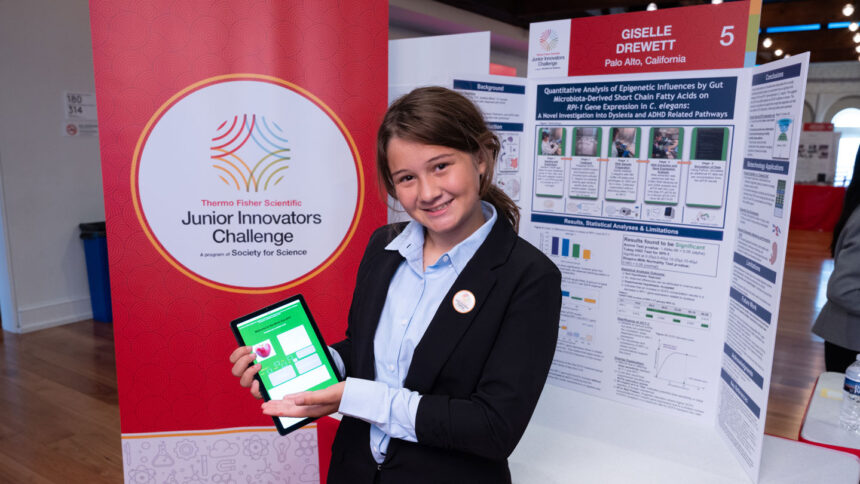
biologist: A scientist involved in the study of living things.
biology: The study of living things. The scientists who study them are known as biologists.
cell: (in biology) The smallest structural and functional unit of an organism. Typically too small to see with the unaided eye, it consists of a watery fluid surrounded by a membrane or wall. Depending on their size, animals are made of anywhere from thousands to trillions of cells. Most organisms, such as yeasts, molds, bacteria and some algae, are composed of only one cell.
climate: The weather conditions that typically exist in one area, in general, or over a long period.
climate change: Long-term, significant change in the climate of Earth. It can happen naturally or in response to human activities, including the burning of fossil fuels and clearing of forests.
data: Facts and/or statistics collected together for analysis but not necessarily organized in a way that gives them meaning. For digital information (the type stored by computers), those data typically are numbers stored in a binary code, portrayed as strings of zeros and ones.
diet: (n.) The foods and liquids ingested by an animal to provide the nutrition it needs to grow and maintain health. Sometimes this is a specific food-intake plan. (v.) To adopt a specific food-intake plan. People may adopt one for religious or ethical reasons, to address food allergies or to control a disease such as high blood pressure or diabetes. They may also adopt one in an effort to lose weight, although this can be unhealthy if not done under the guidance of a health professional, such as a physician or registered dietician.
disorder: (in medicine) A condition where the body does not work appropriately, leading to what might be viewed as an illness. This term can sometimes be used interchangeably with disease.
DNA: (short for deoxyribonucleic acid) A long, double-stranded and spiral-shaped molecule inside most living cells that carries genetic instructions. It is built on a backbone of phosphorus, oxygen, and carbon atoms. In all living things, from plants and animals to microbes, these instructions tell cells which molecules to make.
dyslexia: A learning disability that makes it hard for an individual to spell, quickly recognized combinations of written letters as particular words, and trouble figuring out the sound that should be associated with a particular combination of letters.
engineering: The field of research that uses math and science to solve practical problems. Someone who works in this field is known as an engineer.
environment: The sum of all of the things that exist around some organism or the process and the condition those things create. Environment may refer to the weather and ecosystem in which some animal lives, or, perhaps, the temperature and humidity (or even the placement of things in the vicinity of an item of interest).
epigenetic: An adjective that relates to the molecular switches that can turn a gene on or off. Methyl groups — chemical clusters each made of one carbon and three hydrogen atoms — latch onto DNA near a gene. It’s these methyl groups that can alter the programmed activity of a gene. Individuals can acquire an epigenetic change at any time during their lives.
expression: (in genetics) The process by which a cell uses the information coded in a gene to direct a cell to make a particular protein.
factor: Something that plays a role in a particular condition or event; a contributor.
fatty acid: A large molecule made of up chains of carbon and hydrogen atoms linked together. Fatty acids are chemical building blocks of fats in foods and the body.
gene: (adj. genetic) A segment of DNA that codes, or holds instructions, for a cell’s production of a protein. Offspring inherit genes from their parents. Genes influence how an organism looks and behaves.
genetic: Having to do with chromosomes, DNA and the genes contained within DNA. The field of science dealing with these biological instructions is known as genetics. People who work in this field are geneticists.
genetic engineering: The direct manipulation of an organism’s genome. In this process, genes can be removed, disabled so that they no longer function, or added after being taken from other organisms. Genetic engineering can be used to create organisms that produce medicines, or crops that grow better under challenging conditions such as dry weather, hot temperatures or salty soils.
mentor: An individual who lends his or her experience to advise someone starting out in a field. In science, teachers or researchers often mentor students or younger scientists by helping them to refine their research questions. Mentors also can offer feedback on how young investigators prepare to conduct research or interpret their data.
molecule: An electrically neutral group of atoms that represents the smallest possible amount of a chemical compound. Molecules can be made of single types of atoms or of different types. For example, the oxygen in the air is made of two oxygen atoms (O2), but water is made of two hydrogen atoms and one oxygen atom (H2O).
neuroscience: The field of science that deals with the structure or function of the brain and other parts of the nervous system. Researchers in this field are known as neuroscientists.
prosthetic: Adjective that refers to a device that has been developed to replace a missing body part. A prosthetic limb, for example, would replace parts of an arm or leg. These replacement parts usually substitute for tissues missing due to injury, disease or birth defects.
replicate: (in biology) To copy something. When viruses make new copies of themselves — essentially reproducing — this process is called replication. (in experimentation) To copy an earlier test or experiment — often an earlier test performed by someone else — and get the same general result. Replication depends upon repeating every step of a test, one by one. If a repeated experiment generates the same result as in earlier trials, scientists view this as verifying that the initial result is reliable. If results differ, the initial findings may fall into doubt. Generally, a scientific finding is not fully accepted as being real or true without replication.







